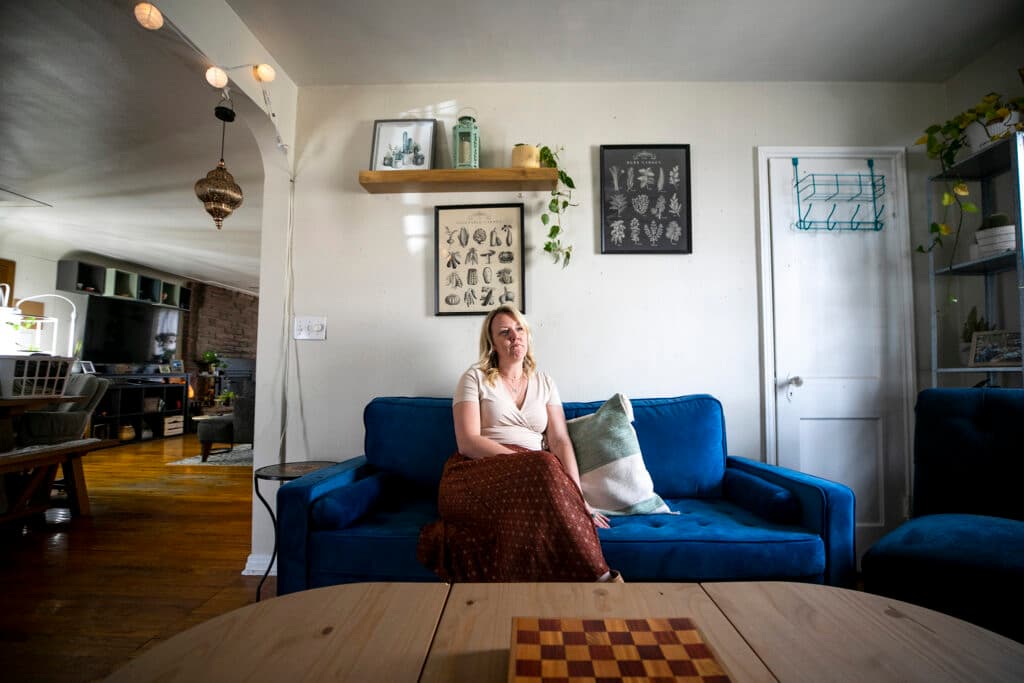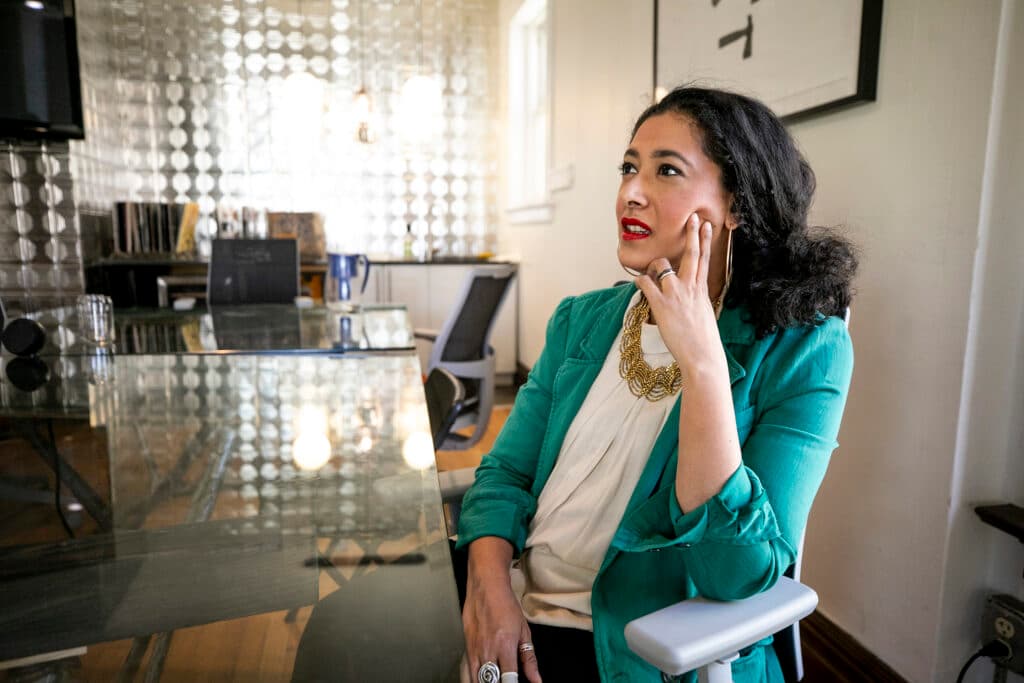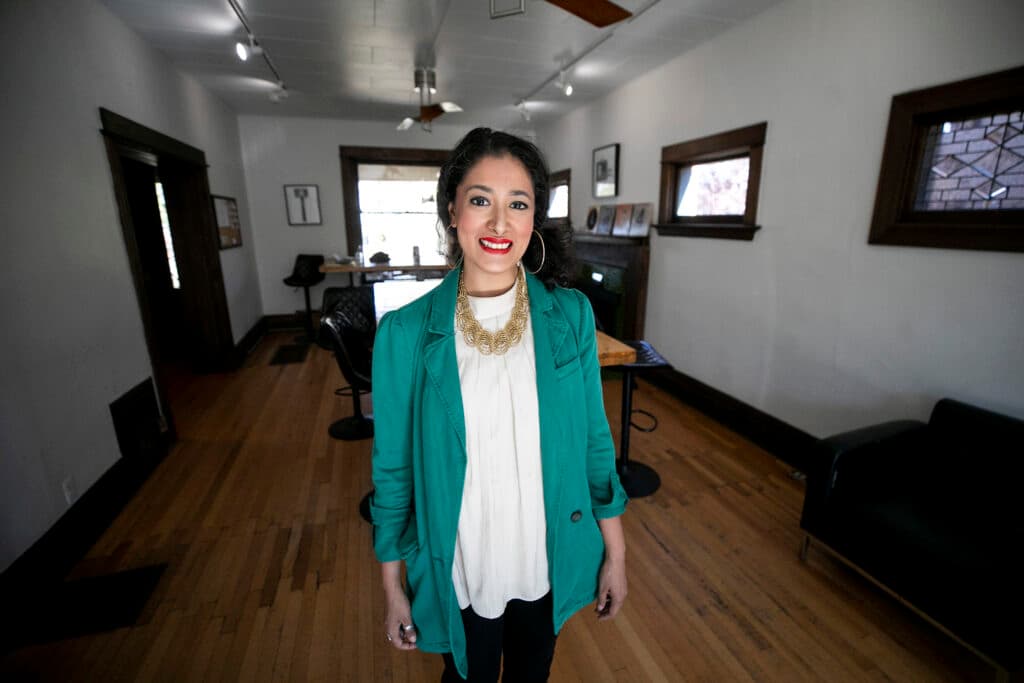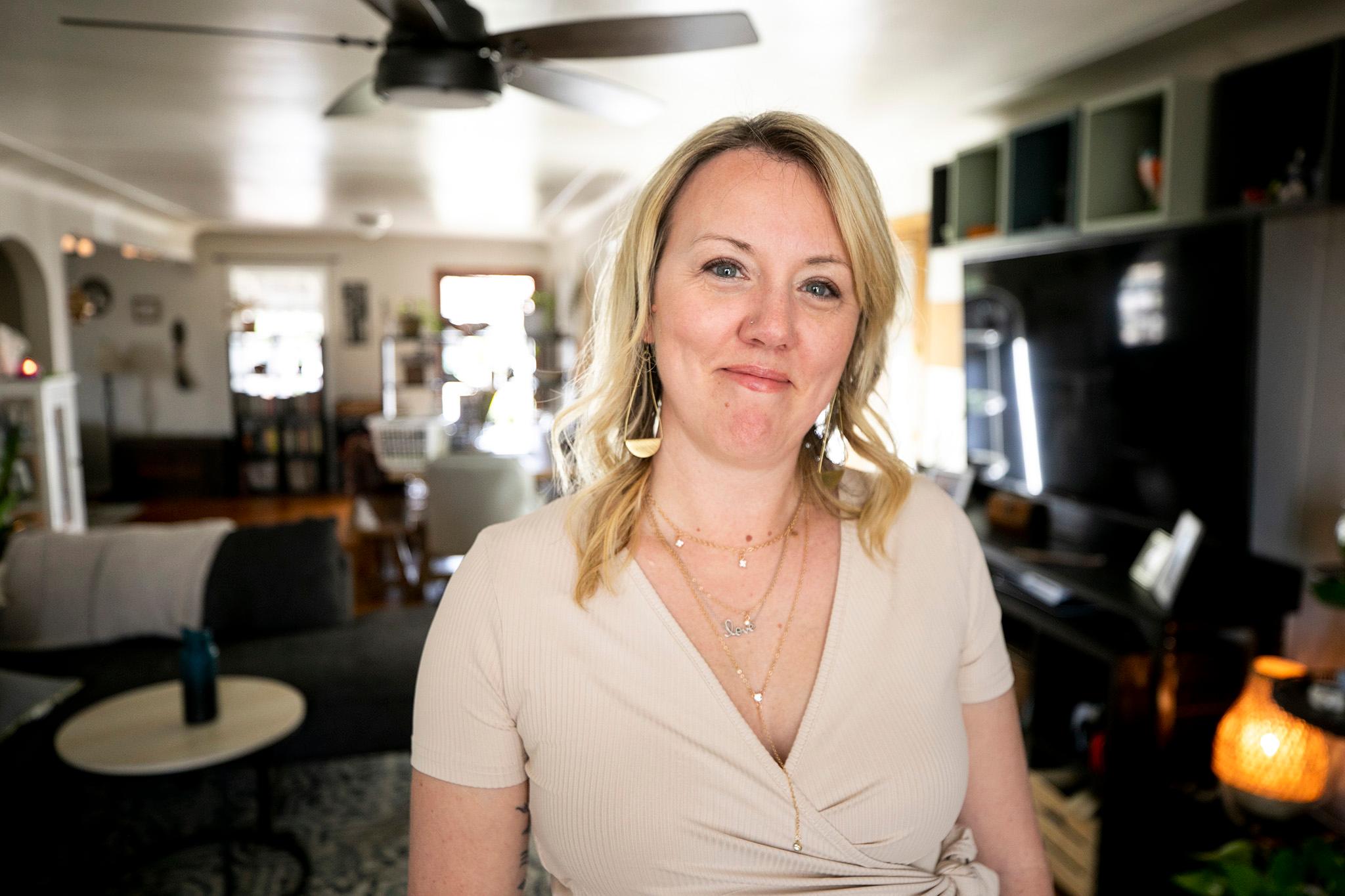Tiffeny Swenby first discovered that her ex thought they were married when he filed for divorce.
Sure, they had lived together and shared a child, she said. But they had never signed a marriage license. To him, that didn’t matter. As he saw it, they had what Colorado calls a Common Law Marriage.
She thought that working together, they could draft a fair plan for their separation without a formal divorce.
“But he didn’t agree to it,” she said.
He wanted the divorce to answer the big questions: Who gets the kids? For how long? Who pays child support? How would their belongings be divided up?
In response, Swenby hired an attorney. She spent $5,000 on a retainer, hoping her lawyer could prove she wasn’t actually married.
The attorneys insisted, instead, on the far more expensive process of preparing for divorce filings. They told her not to bother bringing the non-marriage up to the courts until the court date.

Meanwhile, the lawyers plugged away at their case, and costs piled.
By the time Swenby met with a judge, her $5,000 retainer had been spent. The lawyers demanded more money to continue the case.
“At that point, I was like, ‘This is ridiculous. I told them that I was withdrawing from their counsel,” she said.
Eventually, she connected with family law attorney Maha Kamal, who agreed to offer advice but not full representation. The two met on an hourly basis, and Kamal gave Swenby the tools to represent herself in contesting the idea of the common-law marriage.
“All I had to do was ask for this hearing,” Swenby said. “An hour meeting with Maha got me further than the $5,000 with the attorney I retained.”
Marriage is cheap — $30 in Denver. As for divorce? “The costs are astronomical,” Kamal says.
A two-minute email exchange can cost more than a marriage license. An hour of the attorneys’ time often costs between $200 and $500.
A friendly divorce can cost as little as $500, Kamal said. To work with an attorney on a more complicated case, clients pay a retainer fee — sometimes as much as $5,000.

For parents who want to keep custody of their children, continue to own their property and have long-saved money to spend, proceedings can last years — and the personal and economic consequences can be devastating.
She’s known clients who have spent more than it would cost to put a kid through school on a divorce. Others have gone bankrupt.
Tiffany Richards-Beaty, a public school teacher turned administrator, is in a multiyear battle with her multi-millionaire ex who can afford to keep fighting in court.
“My son's father is a former professional athlete,” she said. “He definitely had control over any and all of our finances. And I had very little to none.”
Richards-Beaty consulted with an attorney who encouraged her to negotiate a parenting agreement with her then-partner. She tried, but the conversation went off the rails, and she moved out of the house.
After she left, her ex blocked her from taking her son and her belongings. He formally evicted her and refused to let her see her three-year-old.
“At this point, then my need for a lawyer drastically changed,” she said.

So, she hired an attorney and filed an emergency motion for custody. The fights have dragged on over the past four years, with ugly accusations being aired in court through filing after filing.
She’s shared custody and decision-making powers with her ex, only to have him attempt to take it away again.
Each new accusation leads to new costs. Richards-Beaty had to sell most everything she owned, from her car to a condo she’d rented out for extra income.
She eventually spent roughly $100,000 and counting, charging much of it to credit cards. She had no way to pay what she owed, and she eventually filed for bankruptcy.
Even now, years after leaving her ex, her legal troubles continue — and the cost of her divorce continues to rise.
Amahd Lowe and his ex-wife first tried to go through their divorce without attorneys, but eventually, he decided they needed them to ensure everything was fair.
While he lost money along the way, he did not go into debt and is grateful he didn’t. He also managed to share custody of his child.
His entire proceeding cost him roughly $5,500 — not nearly as much as others have spent but too much for his budget.
“I ended up with nothing,” Lowe said, though he’s glad he didn’t end up in debt.
The biggest winners in a divorce case, as he sees it, are the attorneys.
“I could have gotten exactly what I got out of my divorce without a lawyer,” Lowe said.
Maybe there’s a better way.
Last year, the Colorado Supreme Court approved a program for limited-licensure paraprofessionals, dubbed LLPs, who could navigate certain family law proceedings without needing a law degree. State lawmakers recently added the decision to Colorado law.
“A lot of people just need help and they can't pay these insane retainer fees,” Kamal said. “And so the justices wanted somebody akin to a physician's assistant, who would be able to help people without facing some sort of unauthorized-practice lawsuit.”
Already, 70 candidates have applied. They are required to go through an ethics course developed by the Community College of Denver. The first class of LLPs will be taking their final exam in April, and most of them are from the Denver metro.

Bringing them into the fold will give more people access to justice in the family law system. Once in the field, these paraprofessionals will likely have lower rates than the attorneys. In Utah, where there’s a similar program, LLP rates start at $75 an hour. Instead, they could charge flat fees.
“We expect to see similarly reduced rates here,” Kamal explained, especially since LLPs can’t go to trial or handle certain types of complex cases. “Clients could save thousands of dollars by opting for an LLP.”
Bringing them into the fold will give more people access to justice in the family law system.
And that’s important. Too often, people make mistakes when they try to save money on legal fees and navigate a divorce without an attorney. Something as simple as incorrectly filling out paperwork can wreck a legal case.
“If you botch that, you could inadvertently either waive your rights to something or set yourself up for a contempt action later because you didn't do it, right,” she said. “So any legal help is better than nothing.”
She’s confident that newly trained paraprofessionals, who are tested in the specifics of family law, will offer as good, if not better, advice than newly trained lawyers lacking expertise and experience in family law.
Instead of waiting for a breakup to determine the outcome of a divorce, she wishes more people had signed prenuptial agreements when they first got married, detailing what would happen in case of a split.
Lowe tells people who are getting married to plan for divorce before they tie the knot.
“I hope you have happiness and a long time with that person,” he says.
But still, people considering marriage need to think about what will happen if things end.
“Get a prenup,” he tells them. “At least you’ll get what you had coming in. You won’t leave empty-handed.”
He also tells people to research divorce: What happens when there are kids involved? What happens to people’s belongings? What are the costs?
“It doesn’t cost you anything to get married,” he said. “It costs you everything to get divorced.”











